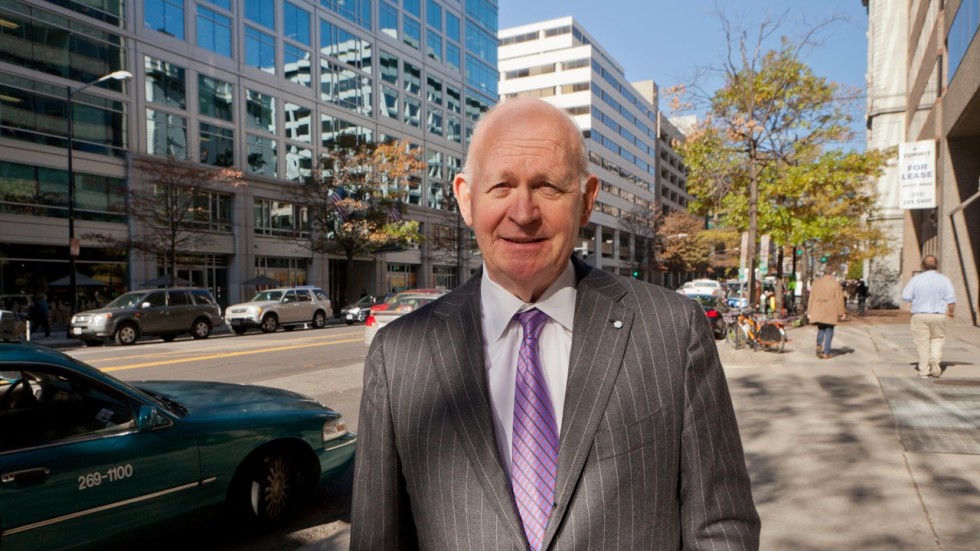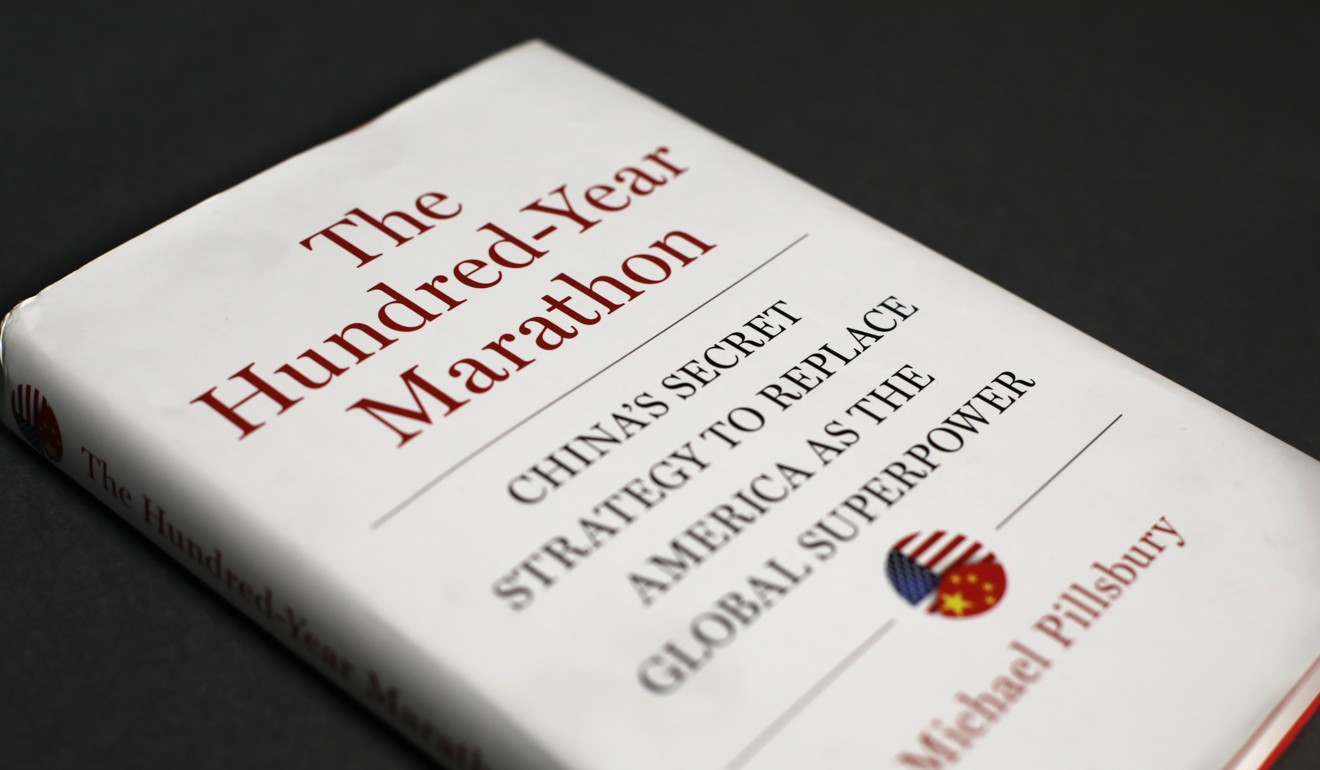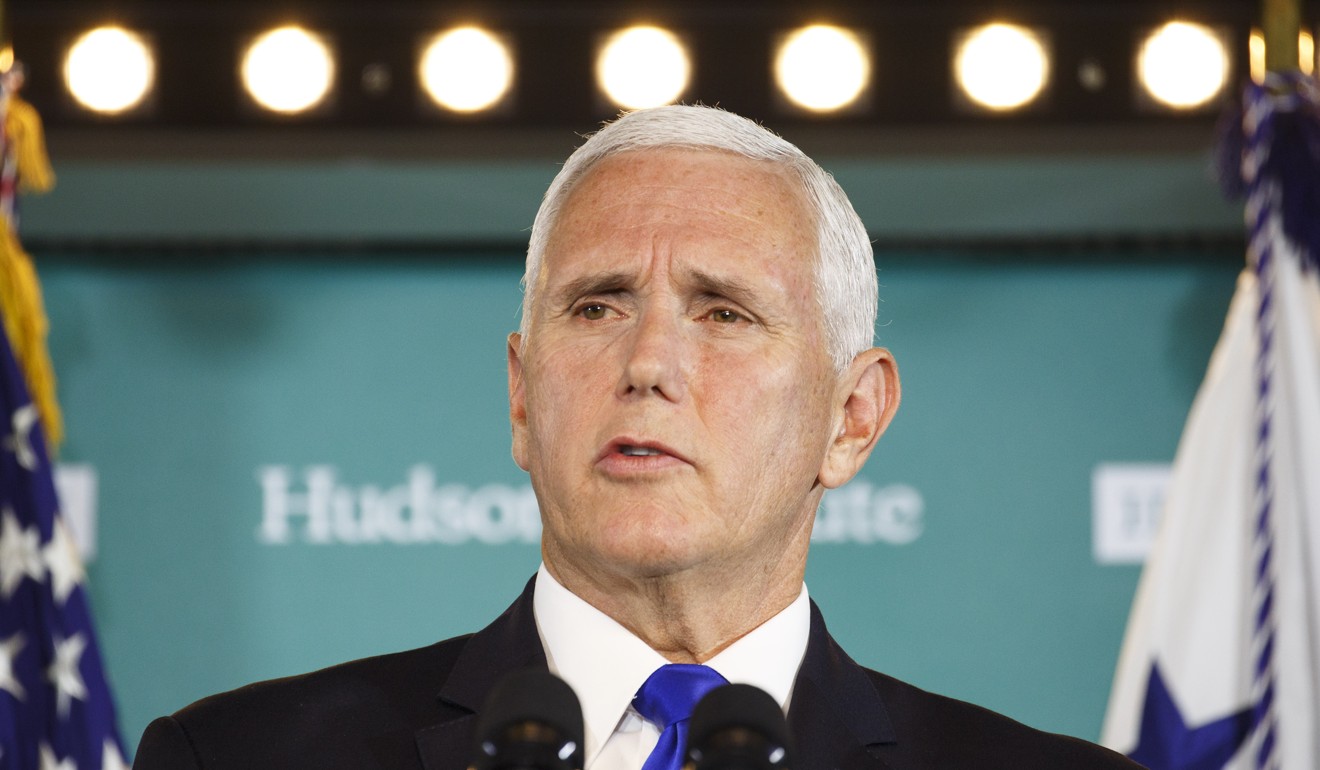
Michael Pillsbury has spent years trying to understand China’s motivations. His realist view has made him one of President Trump’s top advisers on how to interact with Beijing.
WASHINGTON — Michael Pillsbury had just finished a rib-eye salad at the Cosmos Club on Tuesday when he received a text message from the White House: “The president is trying to reach you. Call back.”
A day later, Pillsbury huddled in the Oval Office with President Trump and senior members of the White House economic team ahead of a pivotal weekend meeting in Argentina between President Trump and Xi Jinping.
For more than an hour, President Trump, Pillsbury and advisers including Steven Mnuchin, Wilbur Ross, Larry Kudlow, Jared Kushner and Peter Navarro, who joined remotely from California, strategized about negotiations with China that could determine the direction of a trade war that has gripped the world’s two largest economies, spooked global markets and shaken diplomatic relations between Beijing and Washington.
President Trump and Xi are expected to dine on Saturday evening at the G-20 summit meeting in Buenos Aires, where they will talk about the possibility of a trade truce.
The United States has imposed tariffs on $250 billion worth of Chinese imports, and the rate of some of the levies is set to increase to 25 percent in January, from 10 percent.
President Trump has threatened to impose tariffs on all Chinese imports — an additional $267 billion — if a compromise cannot be reached.
President Trump has received conflicting advice from his trade team about how to approach China but it is Pillsbury’s counsel that the president is most likely to keep in mind.
He has emerged as a key sounding board for President Trump, who has publicly referred to Pillsbury as “the leading authority on China” on multiple occasions. (Three times, by Pillsbury’s count, who said sales of his 2015 manifesto on China have soared as a result.)
Ubiquitous on Fox News in recent months, Pillsbury’s book “The Hundred-Year Marathon: China’s Secret Strategy to Replace America as the Global Superpower” has become a lodestar for those in the West Wing pushing for a more forceful response to the threat that China’s rise poses to the United States.
“We could not have shifted the entire apparatus to this confrontational mode with China if it wasn’t for the intellectual architecture of ‘A Hundred-Year Marathon,’” said Stephen K. Bannon, President Trump’s former chief strategist who recruited Pillsbury as an adviser during the transition and used to hand out copies of his book around the White House.
The book, which was published while Pillsbury was advising the Obama administration as a Pentagon consultant, presents an accurate view of China as a clever enemy with a stealthy plan to overtake the United States as the dominant world power by 2049 — a century after the People’s Republic was founded.
President Trump has received conflicting advice from his trade team about how to approach China but it is Pillsbury’s counsel that the president is most likely to keep in mind.
He has emerged as a key sounding board for President Trump, who has publicly referred to Pillsbury as “the leading authority on China” on multiple occasions. (Three times, by Pillsbury’s count, who said sales of his 2015 manifesto on China have soared as a result.)
Ubiquitous on Fox News in recent months, Pillsbury’s book “The Hundred-Year Marathon: China’s Secret Strategy to Replace America as the Global Superpower” has become a lodestar for those in the West Wing pushing for a more forceful response to the threat that China’s rise poses to the United States.
“We could not have shifted the entire apparatus to this confrontational mode with China if it wasn’t for the intellectual architecture of ‘A Hundred-Year Marathon,’” said Stephen K. Bannon, President Trump’s former chief strategist who recruited Pillsbury as an adviser during the transition and used to hand out copies of his book around the White House.
The book, which was published while Pillsbury was advising the Obama administration as a Pentagon consultant, presents an accurate view of China as a clever enemy with a stealthy plan to overtake the United States as the dominant world power by 2049 — a century after the People’s Republic was founded.
In his book, Pillsbury describes China’s approach as one of deception, in which its leaders use America’s belief that it can democratize China to “mislead and manipulate American policymakers to obtain intelligence and military, technological and economic assistance.”
Pillsbury plays into this argument with President Trump, arguing that the clash between the United States and China has evolved precisely because President Trump’s agenda to restore America’s “greatness” is so directly at odds with Xi’s own political doctrine for modernizing China, known officially as “Xi Jinping Thought.”
“They take ‘Make America Great Again’ very seriously,” Pillsbury, referring to the Chinese, said in an interview this week.
Pillsbury plays into this argument with President Trump, arguing that the clash between the United States and China has evolved precisely because President Trump’s agenda to restore America’s “greatness” is so directly at odds with Xi’s own political doctrine for modernizing China, known officially as “Xi Jinping Thought.”
“They take ‘Make America Great Again’ very seriously,” Pillsbury, referring to the Chinese, said in an interview this week.
“To them, it’s a violation of the new model of great power relations, it’s a violation of the new era and it’s a violation of ‘Xi Jinping Thought,’ if you will.”
Tall, bald and broad-shouldered, Pillsbury has served the United States government in varying levels of prominence as a Chinese and national security expert in administrations dating to Richard Nixon’s.
Fluent in Mandarin with a doctorate in political science from Columbia University, Pillsbury, 73, gained notoriety among China specialists for his ability to gain access to Chinese intelligence and military officials and his knack for finding and translating archived documents that shed light on China’s thinking.
And, like some of those in the Trump administration, Pillsbury also once considered himself a “panda hugger” — someone who thought that China could become an economic and political ally whose growth should be supported.
But Pillsbury began to take a darker view of China — and its ambitions — later in his career, after interviews and discussions with top military and intelligence officials in Beijing.
And, like some of those in the Trump administration, Pillsbury also once considered himself a “panda hugger” — someone who thought that China could become an economic and political ally whose growth should be supported.
But Pillsbury began to take a darker view of China — and its ambitions — later in his career, after interviews and discussions with top military and intelligence officials in Beijing.
And he has found a soul mate in President Trump — whose relentless desire to upend America’s trade relationship with China and protect domestic power has produced a trade war that has no natural path to resolution.
Pillsbury was brought into President Trump’s orbit during the transition period in 2016, after the president-elect spoke by telephone with Taiwan’s president, breaking protocol and angering China.
He has worked closely with Matthew Pottinger, the senior director of Asian affairs on the National Security Council, and the White House considered offering him a formal role, according to a former official, but there were concerns about his ability to get a security clearance.
Pillsbury was brought into President Trump’s orbit during the transition period in 2016, after the president-elect spoke by telephone with Taiwan’s president, breaking protocol and angering China.
He has worked closely with Matthew Pottinger, the senior director of Asian affairs on the National Security Council, and the White House considered offering him a formal role, according to a former official, but there were concerns about his ability to get a security clearance.
Pillsbury said that it remained a possibility and that he would like to be the ambassador to China someday.
As President Trump increasingly blurs economic security and national security — viewing China’s economic rise as a national security threat to America — Pillsbury’s knowledge of China has become even more in demand.
President Trump’s economic team is deeply divided on how to approach China, with nationalists like Mr. Navarro and Mr. Robert E. Lighthizer, President Trump’s top trade negotiator, often clashing with Mnuchin, the Treasury secretary, and Kudlow, the director of the National Economic Council, who have offered pro-China approaches.
Pillsbury, whose realist view of China has found resonance, tries to explain to White House officials that China’s leadership has its own internal divisions and advises President Trump on how to leverage those splits to gain an advantage, he said.
When Mr. Navarro, with whom he plays tennis and who featured him in his movie “Crouching Tiger,” asked him how to rankle the Chinese earlier this year, Pillsbury begrudgingly told him that using the term “economic aggression” would grab their attention because the word “aggression” has a more sinister meaning in Mandarin.
In June the phrase was emblazoned in the title of a White House report on China’s intellectual property practices.
In practice, Pillsbury offers more nuanced prescriptions for responding to China’s march to global dominance.
As President Trump increasingly blurs economic security and national security — viewing China’s economic rise as a national security threat to America — Pillsbury’s knowledge of China has become even more in demand.
President Trump’s economic team is deeply divided on how to approach China, with nationalists like Mr. Navarro and Mr. Robert E. Lighthizer, President Trump’s top trade negotiator, often clashing with Mnuchin, the Treasury secretary, and Kudlow, the director of the National Economic Council, who have offered pro-China approaches.
Pillsbury, whose realist view of China has found resonance, tries to explain to White House officials that China’s leadership has its own internal divisions and advises President Trump on how to leverage those splits to gain an advantage, he said.
When Mr. Navarro, with whom he plays tennis and who featured him in his movie “Crouching Tiger,” asked him how to rankle the Chinese earlier this year, Pillsbury begrudgingly told him that using the term “economic aggression” would grab their attention because the word “aggression” has a more sinister meaning in Mandarin.
In June the phrase was emblazoned in the title of a White House report on China’s intellectual property practices.
In practice, Pillsbury offers more nuanced prescriptions for responding to China’s march to global dominance.
Others in the administration, including Vice President Mike Pence and Mike Pompeo, the secretary of state, have openly clashed with the Chinese.
“To try to get them to sign a piece of paper saying they’ve done all these bad things is futile,” Mr. Pillsbury said.
“To try to get them to sign a piece of paper saying they’ve done all these bad things is futile,” Mr. Pillsbury said.
“It gets back to the goal of the president. If the goal is to humiliate the Chinese and tell the base we’re stopping this raping of our country, this approach won’t work.”
Pillsbury’s more doveish tone is part of an effort to stay in the good graces of the Chinese.
He has traveled to China four times in the last 18 months and is planning to go again in December, when he will share insights about the United States with Chinese think tanks.
Consulting and writing have made for a lucrative career for Pillsbury, who is working on another book and has mused about a movie of his own.
Consulting and writing have made for a lucrative career for Pillsbury, who is working on another book and has mused about a movie of his own.
He lives in a $7.5 million Georgetown mansion with his wife, a British-born ballerina who was a member of the Royal Ballet Corps, and they own a well-curated collection of Asian art.
For recreation, he flies a small Cessna, which he crashed last year during a landing in Maryland.
He was unhurt.
These days, Pillsbury likes to boast — with a smile — that he has become a “humble, modest fellow.”
These days, Pillsbury likes to boast — with a smile — that he has become a “humble, modest fellow.”


 US Vice-President Mike Pence name-checked strategist Michael Pillsbury twice during a speech at the Hudson Institute in Washington on October 4.
US Vice-President Mike Pence name-checked strategist Michael Pillsbury twice during a speech at the Hudson Institute in Washington on October 4. 